- Home
- Philip Pullman
The Collectors Page 2
The Collectors Read online
Page 2
"Another world...Yes, of course. How had she come here, to this world? On a flying saucer?"
Grinstead looked at him, and Horley flinched.
"I'm being serious," Grinstead said. "Don't push it."
"No, no...I'm not, really I'm not. I'm, I'm, I'm, I just, it's, it's all unfamiliar. You must see that?"
"Yes, I do see that. Perfectly reasonable point. Well, in theory, all these worlds are mutually unreachable. The physics wouldn't allow things to be otherwise. In practice, the whole structure...leaks. Things get picked up and put down on a windowsill, for example, that opens just once, just briefly, into another world; someone passing by takes a fancy to it, and off it goes, never to be seen again. Your little pottery elephant, Marisa van Zee, here a blackbird, there a bus timetable....A small boy has an imaginary friend--they play together for hours--whisper secrets, swear eternal love, pretend to be king and queen....But she's not imaginary, she comes through that tumbled bit of wall behind the greenhouse, and one day he finds that someone's mended it, and she's lost for ever. Or that house you saw from the train window, that little glimpse of the perfect dwelling, and you make the same journey over and over and you never see it again. Well, that's what's happening: an infinity of worlds, and a thousand and one little leaks in the fabric."
"And these other worlds--are they all the same as this one?"
"No. Some of them are just like this one, except for one detail. Imagine a world just like this, for example, but where every human being has an animal spirit accompanying them. A sort of visual spirit guide, animal totem, that sort of thing. Part of their own selves, but separate. For example."
Horley looked at the picture, and then mopped his brow. "I'm not sure that I can. Imagine it. How long did you...?"
"How long did we have together? Less than a month. There were things she didn't want to tell me. I had an impression of high politics, of important negotiations, diplomatic secrets, but I respected her discretion. Meanwhile, Skipton was painting this."
Horley was scratching again, and breathing hard.
"But, Grinstead," he said, "this was eighty years ago, and you're not even fifty. I still can't get a sense of where you're sort of standing in all this. Are you talking about yourself, or about someone else? Is this fiction?"
"It's true. It happened to me. Time passes differently in different worlds. It might be eighty years ago in one perspective, but things don't always line up neatly."
"So..." Horley was waving a hand loosely in the air, as if trying to catch a drifting mote of dust. "So you and, and Marisa came from the same world?"
"That's not what I said."
"No, course not. Grinstead, what..." Horley was trying to remember how this evening had come about. He must have invited Grinstead, since they were sitting in his college; but how did he know the man in the first place? It had completely slipped his mind. "I think I must be drunk," he said with great clarity.
"You were going to unpack the monkey."
"Oh God, yes, the monkey....Better get the little brute out of his box. Stay there."
Horley got up, tottered slightly, and pulled a wooden box out from under the table. It was formidably fastened with nails and heavy metal tape.
"Those nails are rusty," said Grinstead. "Be careful how you take them out."
Horley was rummaging in a drawer behind his desk.
"Here we are," he said, and held up a pair of pliers.
"You need something better than that. A proper nail-pull--"
"No, these are fine. Opened dozens of boxes."
He worked the nose of the pliers under the metal tape, slipping several times, and tried to lever it up, without success. Then he attacked a nailhead, without managing to grip it once.
"Screwdriver," he said. "In the drawer, Grinstead, would you mind?"
Grinstead put his glass down on the floor and went to look in the drawer. There was one screwdriver, whose head was worn and rounded. Horley took it and jammed it hard under the tape, levering upward, so hard that the blade of the screwdriver bent. Grinstead sat back down to watch. Horley next tried to stab the blade of the screwdriver under the lid, and missed several times, but finally managed to lever it up. The wood splintered, but only at that spot. Horley stood up to take off his jacket. He was sweating, and there seemed to be a rash on his face.
"Hammer," he said. "That's what we need."
"Are you going to smash it entirely?"
"No, no, lever the, you know, the nailheads, with the claw. Lever them up. Don't know why I didn't think of it before."
There was a hammer in the drawer. Horley blew out his cheeks and set to with the claw and, after great effort, managed to lever one of the nails halfway out. Grinstead watched him closely.
"See! Just persistence. That's all you need," Horley said.
"Of course."
"Do it all now."
"You're nearly there."
"Absolutely."
He continued bashing, levering, pulling, and finally managed to twist the metal tapes aside and over the edge of the top. He stood up, panting. His breath was wheezing in his throat.
"Grinstead, would you mind finishing it off?" he said. "I'm not sure I..."
Grinstead took the hammer and pulled out the rest of the nails. It only took a minute. He lifted the top off the box and set it aside, and then reached down into the mass of crumpled paper and curls of wood shavings in which the bronze was packed.
"Here it is," he said.
He lifted it out and unwrapped the final layer of tissue paper before setting the monkey on the table next to the picture. It was just as repulsive as he remembered. He turned to Horley, who was gazing at it with an expression of horror.
"Horley? Surely you knew what it looked--"
"No, it's not..." Horley swayed, clutching at the table. The picture rocked on its easel. "Grinstead, I'm not feeling very well--oh God...."
He stumbled toward the bedroom and flung open the door just in time to vomit into the washbasin inside it. His breathing was louder, high-pitched, and more labored. It sounded like a very bad attack of asthma.
Grinstead stood up and looked at his watch. It was getting on for one o'clock.
"Horley? You all right?"
Horley's breath was rattling. "Can't breathe," he managed to say.
"Let me phone for an ambulance. You don't sound at all good."
"No--can't phone out from here after midnight--the porter's off duty....Oh God--"
He was sick again.
"Go to the lodge," he mumbled. "Phone there somewhere--Grinstead, I'm frightened...."
"I'll be as quick as I can."
Grinstead pressed the switch on the landing. The light went out before he reached the foot of the staircase. He stood inside the doorway and lit a cigarette. The rain had stopped falling, but the moisture in the air was gathering into a dense fog into which the buildings seemed to be dissolving; beyond the dark chapel roof, the air was saturated with a soft orange glow from the street outside. A distant mechanism began to whir quietly, and the chapel bell struck once.
Grinstead smoked the rest of the cigarette and went back upstairs. He held his breath and looked into the bedroom. Horley was dead. He pulled the door shut and turned back.
He cast about for something to carry the picture in, and saw Horley's briefcase, crammed with books and papers, lying on its side under the desk. Grinstead tipped everything out on the floor and found that, with a little persuasion, the picture just fit; it would have been a pity to cut it out of the frame, which was pretty, and suited it very well.
Then he took a pencil from the desk and moved the bunch of keys around until he saw the one Horley had used to open the garden door when he let them in to the college earlier on. Using a handkerchief to keep his fingerprints off the rest of the bunch, he detached the garden key and put it in his pocket.
He looked around. There was nothing to suggest foul play, because after all there hadn't been any foul play. Two men had come he
re to have a drink and look at the bronze sculpture that had obviously been in the box (Grinstead picked up a shaving of wood and dropped it on the monkey's lap), the guest had left, the other had been overcome with some kind of food poisoning, and, unable to phone for help, died in his bedroom.
He left very quietly, carrying the briefcase. There was no need to take the monkey: it would follow in its own time. He found his way through the quad, into the garden and out of the door. He locked it again after him, and set off for his hotel through the freezing fog.
As he turned into the High Street, a taxi came along, too fast, and hit him. In his dark overcoat, he was practically invisible, and he should have stopped to make sure the road was clear, but the taxi driver should have been going more slowly, with visibility so limited. The court found later that they were both to blame. The briefcase flew out of Grinstead's hand and landed on the pavement a moment after his head hit the road. He died at once.
--
"Anaphylactic shock," said the bursar to the chaplain as they stood in Horley's rooms some days later.
"What's that?"
"When you eat something you're allergic to. Nuts, quite often. That's what did him in, apparently."
"Didn't we have that rather nice nut pudding of Chef's that night?"
"Don't know. I wasn't dining that night. I wonder if...Well, it's too late to make any difference now."
"But wouldn't he have known, if he was allergic to nuts?"
"Sometimes not. You find out when the thing kicks in, which it might do at once or it might take a couple of hours, and then you've only got a few minutes."
"Poor man," said the chaplain. "I expect his guest would have gone by that time."
The bursar cast a sideways glance at his colleague, who was gazing sorrowfully at the bronze monkey. "That's what we must suppose," he said.
"And what about his possessions? He's got an awful lot of pictures and things."
"We'll have to make an inventory. He seems to have had no family except an unmarried sister, and I have no idea if he left a will. There's a lot of work involved."
"And what are you carrying, Charles? What's in that parcel? Something of his?"
"Well," said the Bursar. "It's rather odd. On the same night, it seems that a chap was knocked down in the High--You remember how foggy it was?"
"Yes, I do. Beastly."
"That chap was Horley's guest. Had been Horley's guest, I suppose one should say. Killed at once."
"No! Both died on the same night?"
"And he seems to have been carrying Horley's briefcase, containing this painting." He took the picture out of the brown-paper parcel and set it on the little easel, next to the monkey. "So what d'you make of that, Eric?"
The chaplain's old pale blue eyes were wide. "Extraordinary! D'you think Horley had just given him the painting? Or perhaps sold it to him? What a tragic business!"
"If he'd sold it, there'd be a receipt or something of the sort, but we haven't found one. Since there's no evidence it belonged to the other chap, we have to assume it was Horley's. We'll count it all up in the inventory."
"What a very pretty girl. D'you know who she is?"
"No idea," said the bursar, "but she looks mighty pleased with herself."
A Note from Philip Pullman
I started telling stories as soon as I knew what stories were. I was fascinated by them--that something could happen and be connected to another thing, and that someone could put the two things together and show how the first thing caused the second thing, which then caused a third thing. I loved it. I love it still.
I grew up at a time when TV wasn't as important as it is now. In fact, part of my childhood was spent in Australia when that country still didn't even have TV, so a lot of my early experiences with stories came from the radio, which is a wonderful medium. I remember listening to gangster serials, and cowboy serials, and best of all: "Faster than a speeding bullet! More powerful than a locomotive! Able to leap tall buildings at a single bound! Look, up in the sky. It's a bird. It's a plane. It's SUPERMAN!"
Superman on the radio was exciting enough, but when I first saw a Superman comic, it changed my life. Soon afterward, I discovered Batman, too, whom I loved even more. I had to argue with my parents about them, though, because they weren't "proper" reading. I suppose what persuaded my parents to let me carry on reading comics was the fact that I was also reading books just as greedily, and that I was good at spelling; so obviously the comics weren't harming me too much.
My favorite stories for a long time were ghost stories. I used to enjoy frightening myself and my friends with the tales I read, and making up stories about a tree in the woods we used to call the Hanging Tree, creeping past it in the dark and shivering as we looked at the bare, sinister outline against the sky. I still enjoy ghost stories, even though I don't think I believe in ghosts anymore.
I was sure that I was going to write stories myself when I grew up. It's important to put it like that: not "I am a writer," but rather "I write stories." If you put the emphasis on yourself rather than your work, you're in danger of thinking that you're the most important thing. But you're not. The story is what matters, and you're only the servant. Your job is to get it out on time and in good order.
The most valuable thing I've learned about writing is to keep going, even when it's not coming easily. You sometimes hear people talk about something called "writer's block." Did you ever hear a plumber talk about plumber's block? Do doctors get doctor's block? Of course they don't. They work even when they don't want to. There are times when writing is very hard, too, when you can't think what to put next, and when staring at the empty page is miserable toil. Tough. Your job is to sit there and make things up, so do it.
As well as keeping going, there are many other things I've learned about this craft, and some of them came to me when I was teaching. What I enjoyed most in that difficult and valuable profession was telling stories--telling folktales and ghost stories and Greek myths, over and over, until I knew them as well as I knew my own life.
And in doing so, I learned some of the laws of a story. Not rules--rules can be changed. "Smoking Permitted Here" can become "No Smoking" overnight, if people decide smoking is a bad thing. But laws such as the law of gravity can't be changed: Gravity is there whether we approve of it or not. And so are the laws of a story. A story that is unresolved will not satisfy--that's a law. If a scene does not advance the story, it will get in the way--that's another law. You must know exactly where your story begins--that's a third. And so on.
One strange thing about stories is that you sometimes know how long they're going to be, even before you've begun thinking about them. With His Dark Materials, I knew from the very start--even before I had a main character in mind, and long before I knew what might happen to her--that this story would be 1,200 pages long. That was the size of it. I knew, too, that I was going to enter a world I hadn't known before: a world of fantasy. Previously, all of my books had been realistic. When I began writing it, I discovered a kind of freedom and excitement I'd never quite felt before. And that is one of the joys of writing: You constantly encounter new experiences.
I live in Oxford now, and I do my writing in a shed at the bottom of the garden. If the young boy I used to be could have looked ahead in time and seen the man I am today, writing stories in his shed, would he have been pleased? I wonder. Would that child who loved Batman comics and ghost stories approve of the novels I earn my living with now? I hope so. I hope he's still with me. I'm writing them for him.
--Philip Pullman
About the Author
Philip Pullman has won many distinguished prizes, including the Carnegie Medal for The Golden Compass (and the reader-voted "Carnegie of Carnegies" for the best children's book of the past seventy years); the Whitbread (now Costa) Book of the Year Award for The Amber Spyglass; a Booker Prize longlist nomination for The Amber Spyglass; Parents' Choice Gold Awards for The Subtle Knife and The Amber Spyglass; the Guard
ian Prize for Children's Fiction for The Golden Compass; and the Astrid Lindgren Memorial Award, in honor of his body of work. In 2004, he was appointed a Commander of the Order of the British Empire.
Philip Pullman is the author of many books for young readers, including two volumes related to His Dark Materials: Lyra's Oxford and Once Upon a Time in the North. You can read more about his work at HisDarkMaterials.com and Philip-Pullman.com. He lives in Oxford, England.

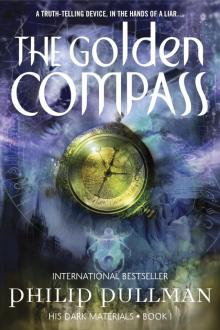 The Golden Compass
The Golden Compass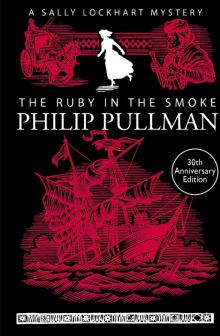 The Ruby in the Smoke
The Ruby in the Smoke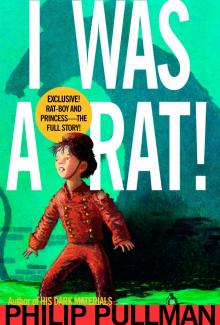 I Was a Rat!
I Was a Rat!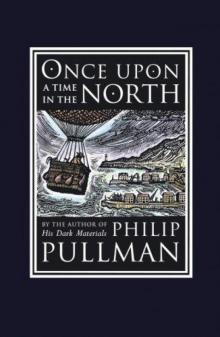 Once Upon a Time in the North
Once Upon a Time in the North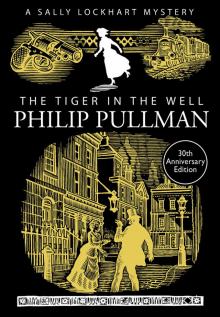 The Tiger in the Well
The Tiger in the Well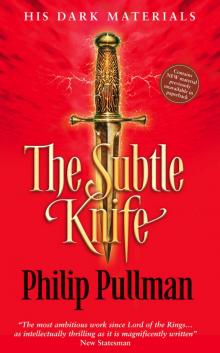 The Subtle Knife
The Subtle Knife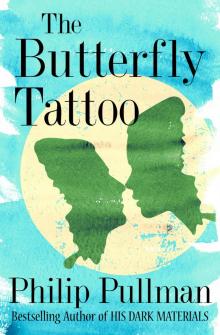 The Butterfly Tattoo
The Butterfly Tattoo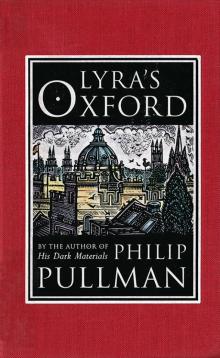 Lyra's Oxford
Lyra's Oxford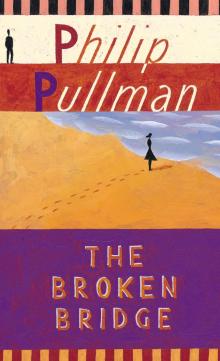 The Broken Bridge
The Broken Bridge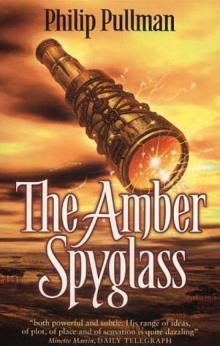 The Amber Spyglass
The Amber Spyglass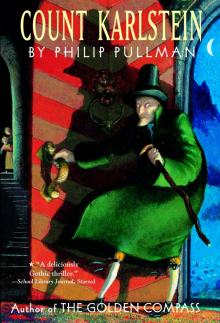 Count Karlstein
Count Karlstein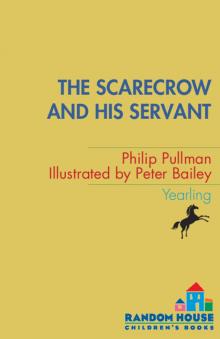 The Scarecrow and His Servant
The Scarecrow and His Servant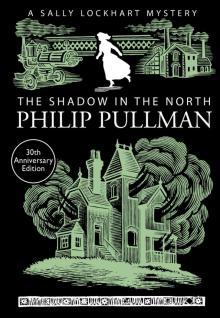 The Shadow in the North
The Shadow in the North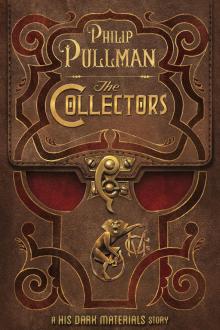 The Collectors
The Collectors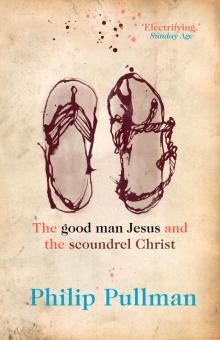 The Good Man Jesus and the Scoundrel Christ
The Good Man Jesus and the Scoundrel Christ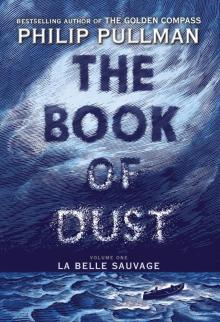 La Belle Sauvage
La Belle Sauvage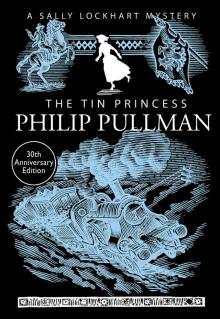 The Tin Princess
The Tin Princess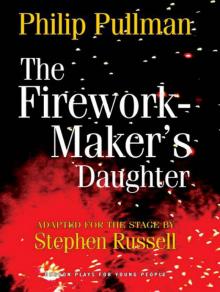 The Firework-Maker's Daughter
The Firework-Maker's Daughter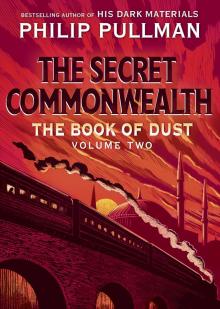 The Book of Dust: The Secret Commonwealth (Book of Dust, Volume 2)
The Book of Dust: The Secret Commonwealth (Book of Dust, Volume 2)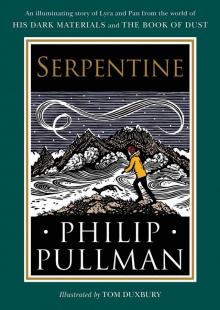 Serpentine
Serpentine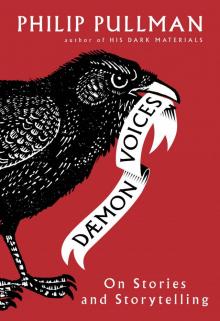 Daemon Voices
Daemon Voices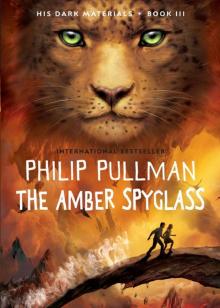 The Amber Spyglass: His Dark Materials
The Amber Spyglass: His Dark Materials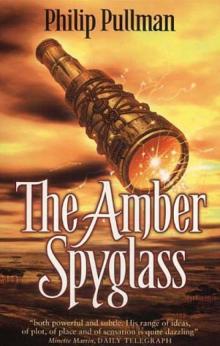 The Amber Spyglass hdm-3
The Amber Spyglass hdm-3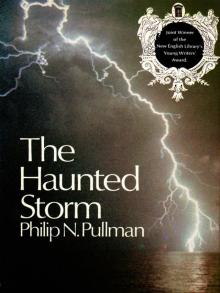 The Haunted Storm
The Haunted Storm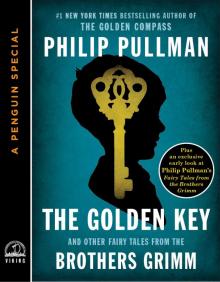 The Golden Key
The Golden Key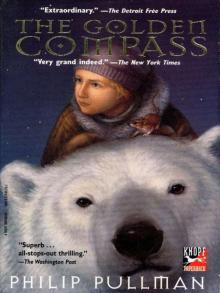 His Dark Materials 01 - The Golden Compass
His Dark Materials 01 - The Golden Compass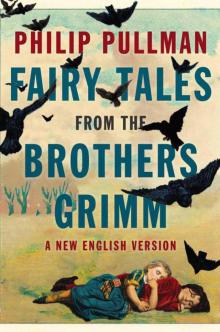 Fairy Tales from the Brothers Grimm: A New English Version
Fairy Tales from the Brothers Grimm: A New English Version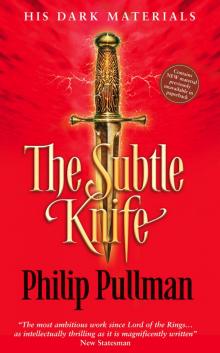 His Dark Materials 02 - The Subtle Knife
His Dark Materials 02 - The Subtle Knife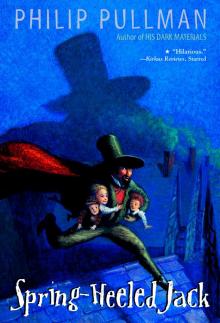 Spring-Heeled Jack
Spring-Heeled Jack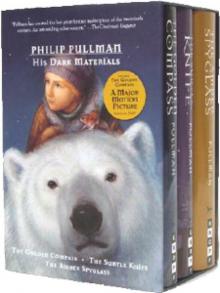 The Golden Compass hdm-1
The Golden Compass hdm-1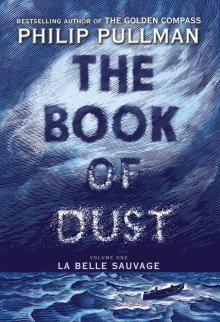 The Book of Dust, Volume 1
The Book of Dust, Volume 1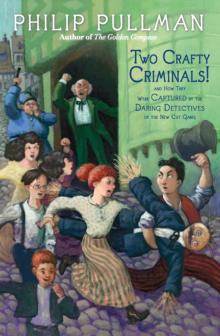 Two Crafty Criminals!
Two Crafty Criminals!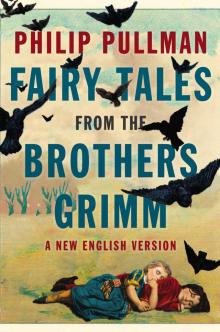 Fairy Tales from the Brothers Grimm
Fairy Tales from the Brothers Grimm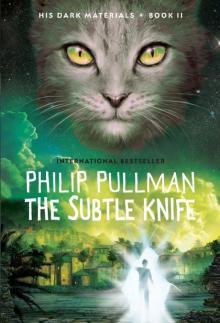 The Subtle Knife: His Dark Materials
The Subtle Knife: His Dark Materials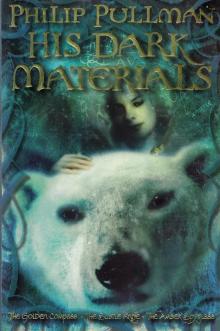 His Dark Materials Omnibus
His Dark Materials Omnibus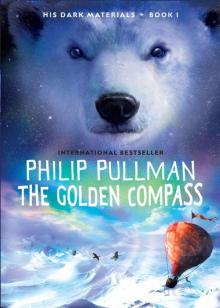 The Golden Compass: His Dark Materials
The Golden Compass: His Dark Materials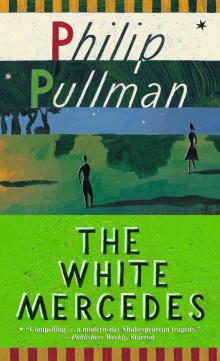 The White Mercedes
The White Mercedes